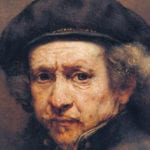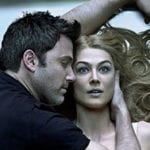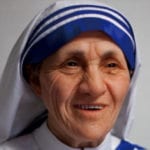 History
History  History
History  Health
Health 10 Everyday Activities That Secretly Alter Consciousness
 History
History Top 10 Historical Disasters Caused by Someone Calling in Sick
 Animals
Animals 10 New Shark Secrets That Recently Dropped
 Movies and TV
Movies and TV 10 Forgotten Realities of Early Live Television Broadcasts
 Technology
Technology 10 Stopgap Technologies That Became Industry Standards
 Weird Stuff
Weird Stuff 10 Wild Facts About Taxidermy That You Probably Didn’t Know
 Travel
Travel 10 Beautiful Travel Destinations (That Will Kill You)
 Miscellaneous
Miscellaneous 10 Modern Marriage Rituals Born from Corporate Branding
 Weird Stuff
Weird Stuff Ten Bizarre Visions of 2026 from Fiction
 History
History 10 “Modern” Problems with Surprising Historical Analogs
 Health
Health 10 Everyday Activities That Secretly Alter Consciousness
 History
History Top 10 Historical Disasters Caused by Someone Calling in Sick
Who's Behind Listverse?

Jamie Frater
Head Editor
Jamie founded Listverse due to an insatiable desire to share fascinating, obscure, and bizarre facts. He has been a guest speaker on numerous national radio and television stations and is a five time published author.
More About Us Animals
Animals 10 New Shark Secrets That Recently Dropped
 Movies and TV
Movies and TV 10 Forgotten Realities of Early Live Television Broadcasts
 Technology
Technology 10 Stopgap Technologies That Became Industry Standards
 Weird Stuff
Weird Stuff 10 Wild Facts About Taxidermy That You Probably Didn’t Know
 Travel
Travel 10 Beautiful Travel Destinations (That Will Kill You)
 Miscellaneous
Miscellaneous 10 Modern Marriage Rituals Born from Corporate Branding
 Weird Stuff
Weird Stuff Ten Bizarre Visions of 2026 from Fiction
10 Books That Greatly Influenced Famous And Successful People
When someone reads the right book at the right time in their life, it can have a profound effect. Such is the case for the people on this list, who come from all walks of life. These people have singled out a book that they read which had a life-changing effect on them. They, in turn, affected the worlds of popular culture, science, technology, and politics.
10 Competing Against Time
Tim Cook

After graduating from college, Tim Cook got into computers when he landed his first job with IBM in 1982. In 1996, he started to work for Apple when they were at the lowest point in their company’s history, having lost $1 billion the previous fiscal year. Cook is credited with reorganizing the company’s manufacturing operations. He simplified the network of manufacturers and distributors, and he improved Apple’s systems to keep better track of inventory. When Apple became one of the most successful companies of all time, Cook was hailed as a brilliant manager with an amazing ability to communicate. After the death of Steve Jobs in 2011, Cook took over as CEO of Apple.
The book that had the greatest effect on Cook, which he is known to hand out to colleagues, is Competing Against Time, by George Stalk Jr. and Thomas M. Hout. The book is about how time management is one of the most important aspects of a company. When a company organizes their time, it cuts down on costs and makes customers happier. Based on ideas from the book, Cook tried to impress upon his employees that it is important to give your customers what they want, when they want it, because if you don’t, your competitor will.
Cook is described here as opposed to Jobs himself, because Jobs had a lot of books that influenced him, and there isn’t a single one to point out. One notable book that Jobs liked was Be Here Now, by Ram Dass. The book was very influential in the hippie movement, and it is about meditation, yoga, and spirituality.
9 The Little Prince
James Dean
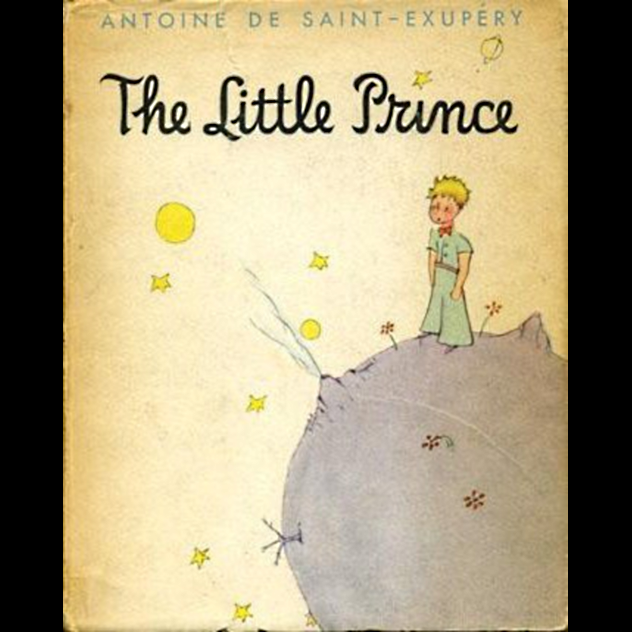
During James Dean’s short life, he made just three films. All of them are considered classics, and he was posthumously nominated for two Academy Awards. His brief flash of stardom still shines today, 60 years after dying in a tragic car accident at the age of 24, on September 30, 1955.
Dean’s favorite book was one that he read in high school, which was the classic and beloved novella The Little Prince, by Antoine de Saint-Exupery. Published in 1943, The Little Prince is narrated by a pilot who crashes in the Sahara Desert. As he is fixing his plane, a little blond boy, the titular little prince, approaches him and asks for help with drawing a sheep. After they become friends, the prince tells the pilot that he came from a tiny planet called Asteroid 325. He left his planet because he got lonely. As he talks to the pilot, he explains that on his journey, he encountered grown-ups for the first time, and he was not impressed with the attitudes of the people he met.
The Little Prince, which the author said is “a book for children that is written for adults,” is about disillusionment with adult life and the dangers of being narrow-minded. One of the main messages is that it is important to keep an open mind and always be curious.
Dean deeply identified with the book and took it with him any time he moved. The book was so important to Dean that his good friend, biographer, and possible lover, William Bast, wrote about it in an inscription on Dean’s memorial near his crash site. The inscription starts off with Dean’s favorite line from the book, “What is essential is invisible to the eye.” It is then followed by Bast’s explanation, “This quotation from Jean Antoine de Saint Exupery’s ‘The Little Prince’ was probably James Dean’s favorite. It seemed to hold a deep and private significance for him, and he read it often especially with those he loved.”
8 The Remains Of The Day
Jeff Bezos
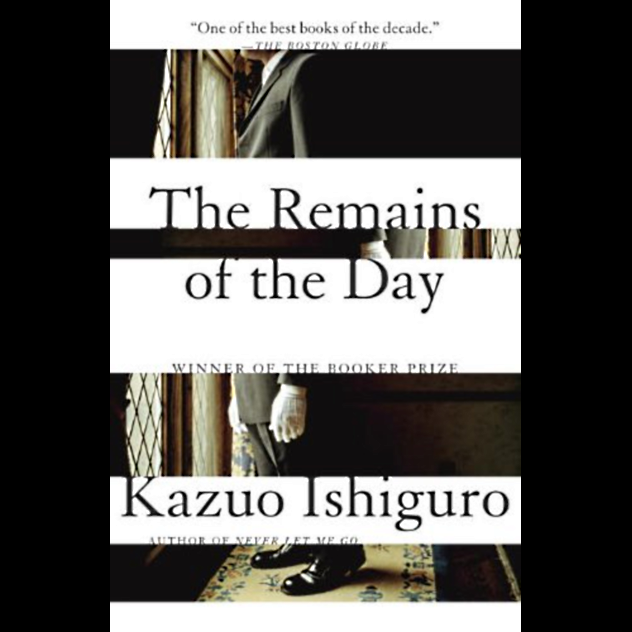
Amazon got its start in 1995 when its founder, Jeff Bezos, left his job as vice president of a Wall Street firm and moved to Seattle to focus on building the business. Originally, Amazon started as an online bookseller and has since grown to be the biggest marketplace on the Internet.
Bezos obviously saw the value in books, so he was asked what was the most influential book he’s ever read. Perhaps, because of Amazon’s success and corporate culture, one might think that it would be some business book. Instead, it is the Man Booker Award–winning Remains of the Day, by Kazuo Ishiguro. The 1989 novel is told from the point of view of an English butler named Mr. Stevens, who tells the story though his diary and everyday events. The plot revolves around his work and his undying love for a housekeeper who used to work at the manor with him.
Bezos said he loved the book because he thought it was impossibly perfect. He did not know someone could actually write something like that. When he was asked if he saw any parallels between his work with Amazon and the book, he said, “What we’re doing here is unusual but nowhere in the same league as impossible.”
7 The Alchemist
Will Smith, Madonna, And Pharrell Williams
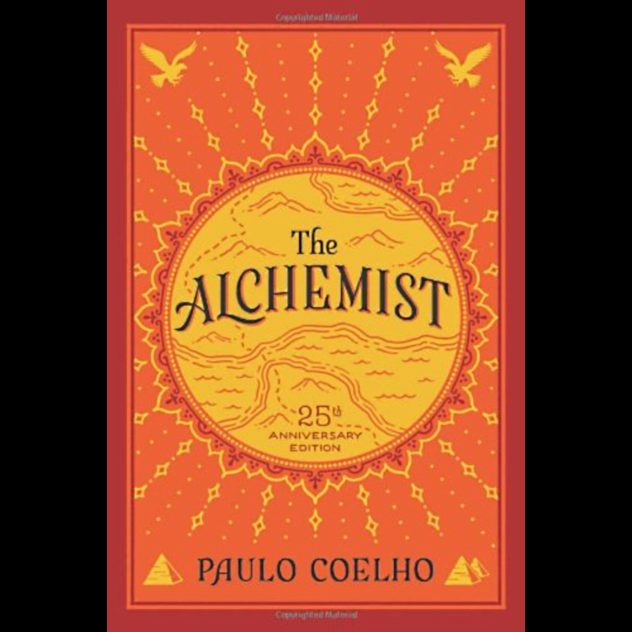
Besides being some of the highest-charting musicians of the past three decades, Will Smith, Madonna, and Pharrell Williams all share a deep love for the same book, and they all credit it with changing their lives. That book is the beloved novel The Alchemist, by Brazilian-born Paulo Coelho.
The mega-bestselling novel follows a young Spanish boy named Santiago. Santiago has a prophetic dream and feels that he needs to travel to Egypt. Before he leaves, he learns about something called the Personal Legend. The Personal Legend is what a person has always wanted to do with their life. It is an innate feeling and children talk openly about it. In the book, it also says that when you try to follow your Personal Legend, the universe will actually work in your favor and rise up to meet you. If you follow your Personal Legend, you can even achieve the impossible, like alchemy, which is turning lead into gold.
In an interview, Will Smith talked passionately about the book and how he dedicates his life to show people that the impossible is possible if you just try. He wants his life to represent possibilities, and he even considers himself a metaphorical alchemist. As for Pharrell Williams, he said the book was like an epiphany to him. He was able to look back at his life, and he realized that he was so thankful for everyone who helped him get to that point in his Personal Legend. Oprah, who is also a fan of the book, said that Madonna told her about it in 1996, and Madonna said it changed her life.
6 Emma
J.K. Rowling

In the modern era of technological advance, J.K. Rowling did the impossible and got millions of children to read books. Even more amazingly, in addition to getting many kids to read something, her books have also transcended the borders of children’s literature and are beloved by people of all ages.
The book that influenced Rowling the most is her favorite book by her favorite author: Emma, by Jane Austen. Emma, which was published in 1815, is a comedy of manners about a young, pretty, rich, and clever woman named Emma Woodhouse. Emma is single and has no desire to marry but likes to get involved with other people’s love lives.
Rowling said that what always impressed her is the mystery at the heart of the novel involving two of the characters, Frank Churchill and Jane Fairfax, who have been secretly engaged for the whole story. Rowling said that no matter what she wrote, she would never be able to write a mystery as good as the one in Emma. She also said that she loved the book because of how well-developed the character of Emma is and how much she identifies with her.
5 Surely You’re Joking, Mr. Feynman!
Sergey Brin
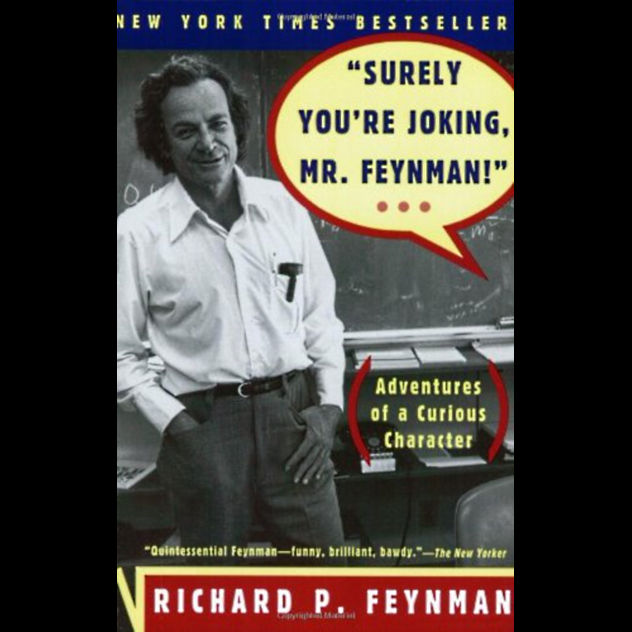
Sergey Brin met his future business partner, Larry Page, at Stanford University. Together, they created a search engine that would sort results by popularity. Of course, that search engine was called Google, and it forever changed the world.
The book that had quite a big impact on Brin was Surely You’re Joking, Mr. Feynman!, by Nobel-winning theoretical physicist Richard Feynman. Feynman helped to develop the nuclear bomb, and he also wrote some books that popularized theoretical physics. He was also known for writing humorous, semi-autobiographical books, and one of the most popular was 1985’s Surely You’re Joking, Mr. Feynman!
What stuck with Brin after all those years was Feynman’s open-mindedness. He was impressed with the fact that Feynman wanted to be the Leonardo da Vinci of his time. He was a musician, a storyteller, a scientist, and a humorist. The book was incredibly influential to Brin because he realized that it was important to be both innovative and creative.
Fittingly, another favorite book of Brin’s is Snow Crash, by Neal Stephenson. It predicted the rise of online communities and programs like Google Earth.
4 Perfume: The Story Of A Murderer
Kurt Cobain
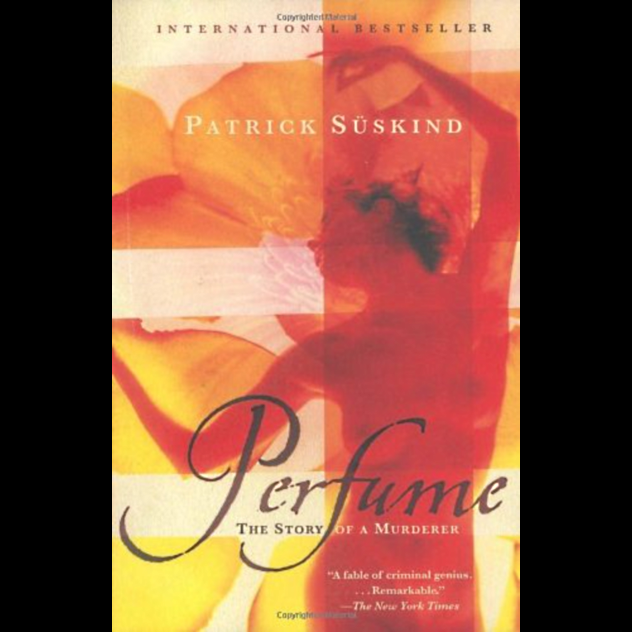
Nirvana’s front man Kurt Cobain is often cited as the voice of his generation. For many fans, he was able to articulate the disenchantment and anger that they felt. Nirvana forever changed American culture, and his death on April 20, 1994, was one of the most defining moments of the 1990s.
The book that had the biggest influence on Cobain was a 1985 German novel called Perfume: The Story of a Murderer, by Patrick Suskind. The book is hailed for its sensory, transcending nature. It is a book that evokes smell, making it a very immersive read. Perfume takes place in a very dirty 18th-century Paris and is about an orphan named Jean-Baptiste Grenouille, who has a unique relationship with scents. For example, he himself has no scent, and this small difference makes him a pariah that no one can stand. Grenouille also has an incredibly sensitive nose. He can dissect smells to their finest points. It would be like a chef being able to break down a taste to individual ingredients. Grenouille can also track smells for miles and sense scents all around him. He smells the world in the same way that Marvel’s Daredevil “sees” his surroundings.
Because smells can be so overwhelming, he also finds that he can’t stand humans because of their repulsive smell. As a result of his ability, Grenouille becomes a creepy loner obsessed with preserving the scents of beautiful women, even if it means killing them in the process. Although he is very much an outsider, he also uses his amazing ability to brew perfumes so wonderful that the public clamors for them. He even becomes famous.
In hindsight, the parallels between Perfume and Cobain’s life are pretty obvious, especially the ending, which we won’t give away here. Cobain said that he read the novel at least 10 times, and he always had the book with him. The story is also the basis for the song “Scentless Apprentice” on Nirvana’s album, In Utero.
3 The Aeneid
Mark Zuckerberg
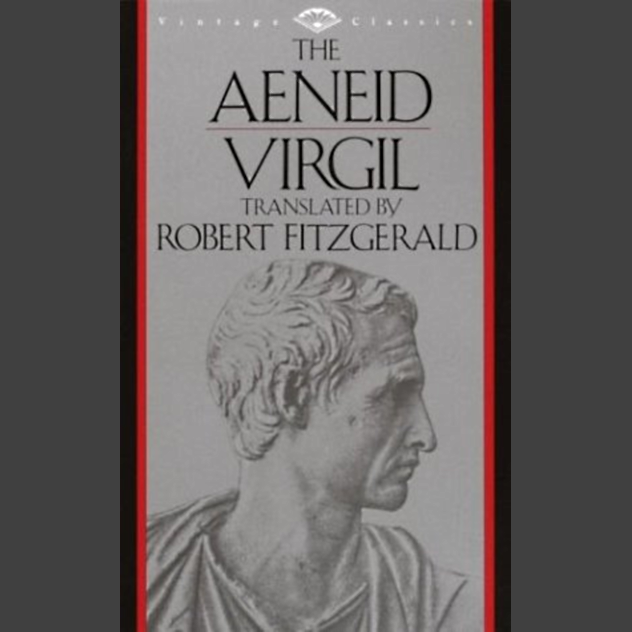
When Mark Zuckerberg first added his likes to his Facebook profile, he put the book Ender’s Game, by Orson Scott Card, as a favorite book. Later, in an interview with The New Yorker, Zuckerberg clarified that the sci-fi classic was one he enjoyed, but it wasn’t his favorite. He said that his favorite book is The Aeneid , by Virgil.
The Aeneid is a Latin epic poem that was written somewhere between 29–19 BC. It is about a group of Trojan survivors, led by Aeneas, who leave the city of Troy after it is destroyed by the Greeks. As he is leaving the city, he finds that it is his fate to lay the foundations for Rome. Aeneas and his fellow survivors go on a long and difficult journey that even involves going to the underworld. In spite of their hardships, Aeneas and the other Trojans carry on because it is their fate to build the most magnificent kingdom that the world has ever seen.
Zuckerberg said that he first read the book when he was in high school while he was studying Latin. There are certainly parallels between Zuckerberg and Aeneas. Zuckerberg had his own journey to create the greatest social network of all time. Zuckerberg said that one thing that stuck with him was Aeneas’s drive to follow his fate to build a city that “knows no boundaries in time and greatness.”
2 A Treatise Of Human Nature
Albert Einstein
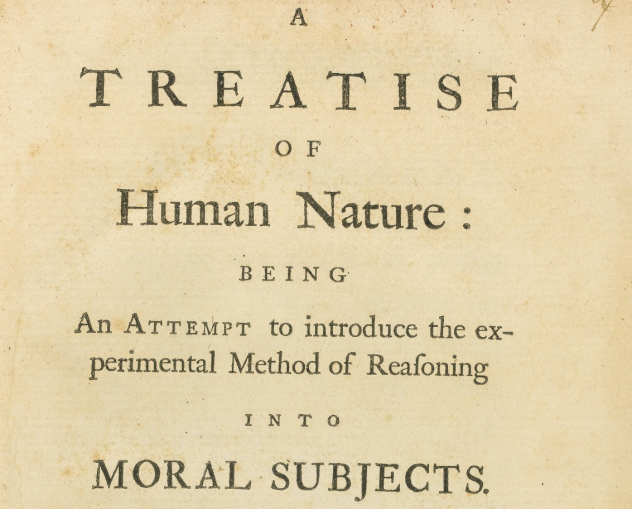
Albert Einstein was one of the greatest minds of all time. His name is synonymous with brilliance. So, what book had the biggest effect on such an important mind? It was A Treatise of Human Nature, by David Hume, which was published in 1738. Hume was a Scottish philosopher known for his contributions to philosophical skepticism.
A Treatise of Human Nature, which is actually three books, was Hume’s attempt to look at philosophy in a different way. It is a rather complicated book, which should be expected if Einstein loved it. Hume argued that not everything from life can be figured out from experiences. Book I, “Of The Understanding,” is about the origins of ideas. Then, he discusses his skepticism about space, time, knowledge, and probability, including the nature of cause and effect. Book II, “Of the Passions,” talks about first and second impressions and how our actions are affected by reason and passion. The third book is “Of Morals,” where he argues that morality isn’t based on logic but is more of a passion.
Einstein mentioned a few times that A Treatise of Human Nature had a large influence on him. He read the book just before coming up with his famous special relativity theory. In a letter, Einstein said that Treatise helped him formulate the ideas. It was like he already had the ideas incubated in his brain, and Hume helped him to articulate them.
1 That Printer Of Udell’s
Ronald Reagan
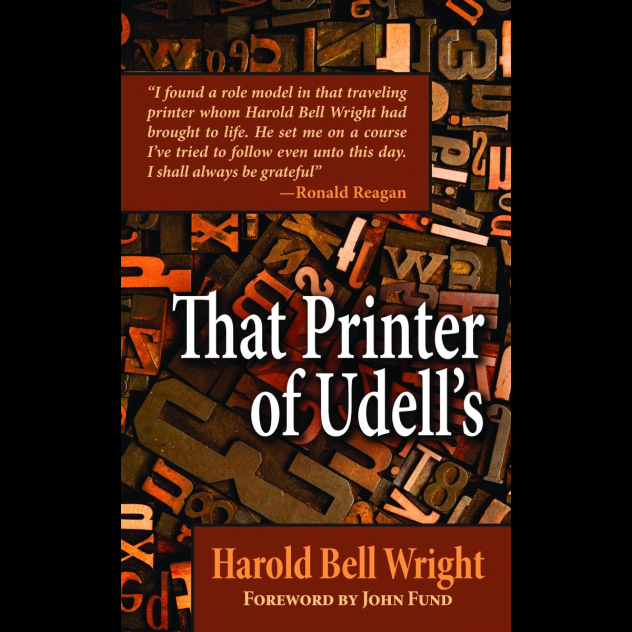
One book that had a big effect on former President Ronald Reagan as a child was the Christian book That Printer of Udell’s, by Harold Bell Wright. The main character of the book, Dick Falkner, was born into a broken home with an alcoholic father. In the opening pages of the book, his mother starves to death while his father has passed out. After losing both of his parents, Falkner moves to a bigger city, called Boyd City, and believes that “real Christians” would not let him starve. However, everyone turns Dick down for a job, except for a printer. He hires Dick, and the two become Christians. Dick later becomes a minister and helps to rescue Boyd City. At the end of the book, Dick heads to Washington, DC, to become a politician.
The impact that the book had on Reagan was twofold, and it would forever change the course of his life. The first was that it inspired him to get baptized, and he became a Presbyterian, which he would remain until the day he died. The second was that it showed him that good could triumph over evil and that the good guys followed a code of morality. This, of course, can be seen as a driving factor in his presidency, especially his stance on communism and his War on Drugs.
Another book that had a big impact on Reagan was Witness, by Whittaker Chambers. The book is about Chambers’s time in the US Communist Party, which he joined in 1925 and became a spy for the Soviets. Chambers later renounced communism and testified against Alger Hiss at his perjury and espionage trial. The book reconfirmed Reagan’s belief and stance against communism.
Robert Grimminck is a Canadian freelance writer. You can friend him on Facebook, follow him on Twitter or on Pinterest, or visit his website.



